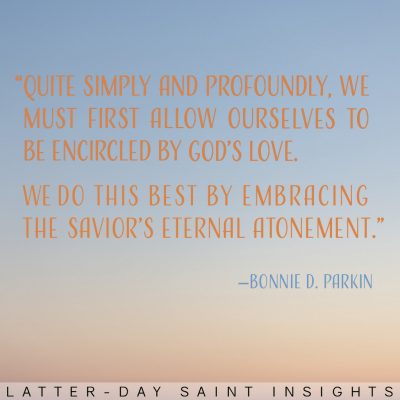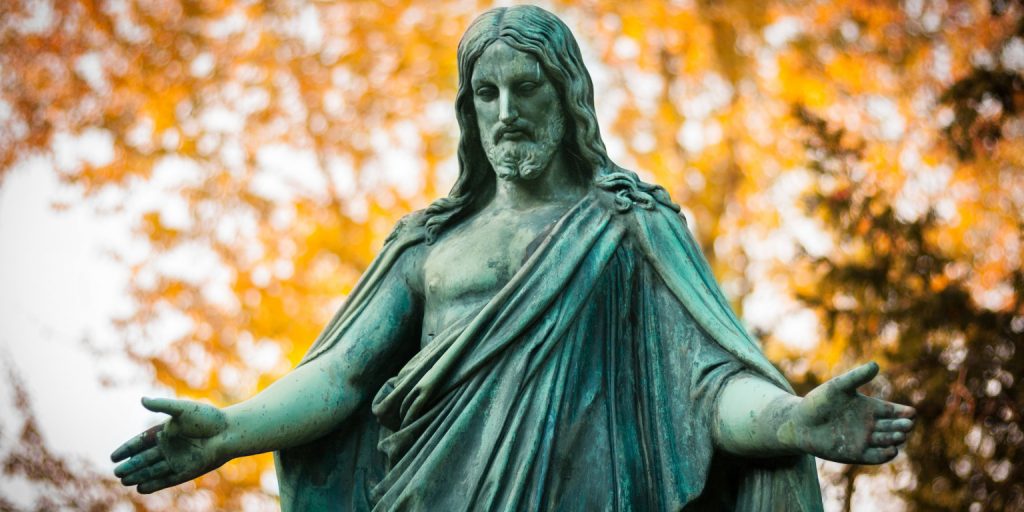Truly believing in and accepting the constant care of the Shepherd empowers us to become more like him and share his love.
You are held, supported, and adored by the Good Shepherd. You are his lamb.
Jesus loves us eternally, but sometimes we imagine that Jesus will love us less or let go of his strong grip on us—his lambs—when we make mistakes. At other times, we fail to remember him. In either case, we’re missing an essential truth: we need to believe in Christ’s love and in the power of his Atonement.

Photo by Cesar Couto
In the general conference talk “Eternally Encircled in His Love,” President Bonnie D. Parkin taught, “We must…allow ourselves to be encircled by God’s love. We do this best by embracing the Savior’s eternal Atonement.”
We need to believe that we are beloved. A lamb could never do anything to change the loving way that Jesus looks at and holds it. The Shepherd’s mercy is beyond mortal understanding. His grace flows forever. He is always welcoming us into his fold.
What would it mean for each of us if we embraced his love in the way he embraces us? We would be filled with peace and excitement at the prospect of becoming more like our dearest friend—our Savior. Our feelings of reverence would deepen for the gift of his sacrifice on our behalf. Our love for him and for all our brothers and sisters would grow. Our joy in his love would lead us to expand our circle and share his love with urgency and without limitations.
As Sister Parkin said, “Such a circle is indeed heaven.”
Read more
To read more about how to feel and accept Jesus’s love for us, read “Eternally Encircled in His Love” by President Bonnie D. Parkin.
Source: General Conference
—Emma Freestone, Latter-day Saint Insights
FEATURE IMAGE BY MANUEL RHEINSCHMIDT
Find more insights
Learn how to be confident in God’s presence and come closer to Jesus by reading “The Approachable Master” by Douglas R. McKinlay.
Learn about how to remember and involve Christ more frequently in our daily lives by reading “And Always Remember Him” by Gordon B. Lindsay.
Learn more about the difference between worth and worthiness by reading “On Being Worthy” by Marvin J. Ashton.


